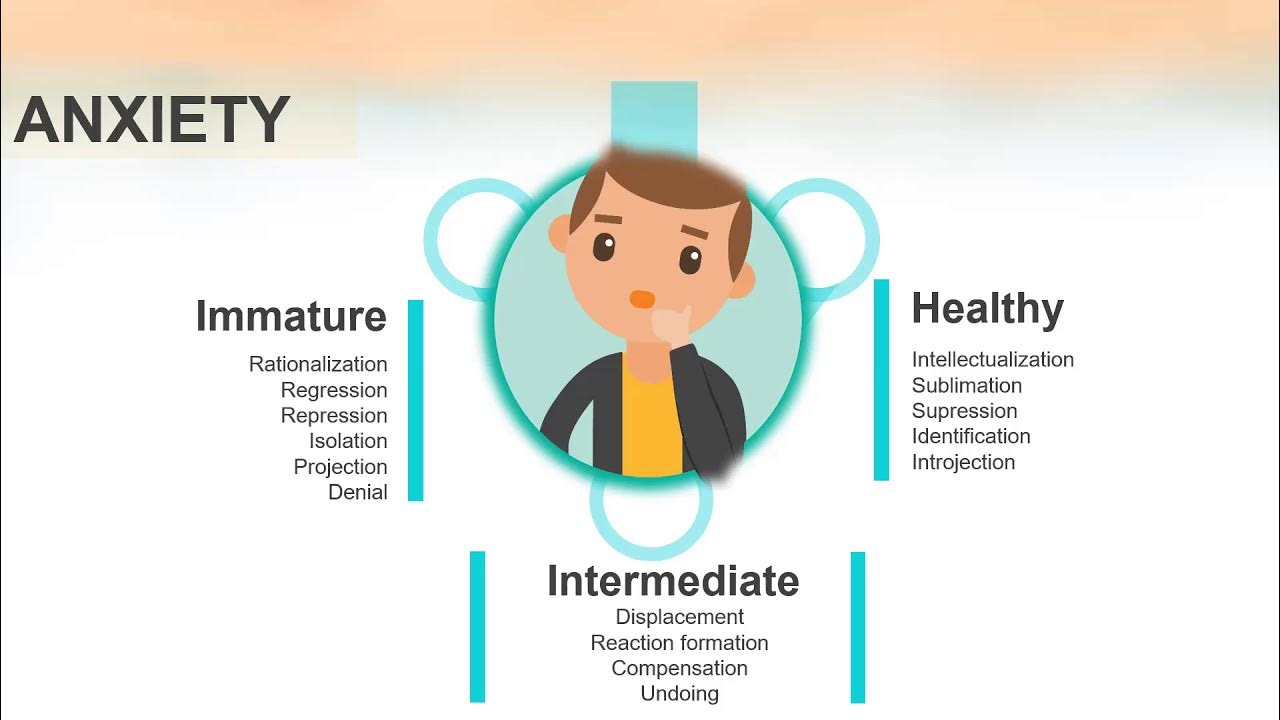Ch8 p1 2016
Summary
TLDRThe video explores mental health in older adults, highlighting the complex interplay between mental illness and positive well-being. It discusses the prevalence of depression among older individuals, its often undiagnosed symptoms, and the importance of screening. The video also examines dementia, including its symptoms, causes, and the need for early detection to enable effective interventions. It underscores the disparities in diagnosis among different racial and ethnic groups and emphasizes the importance of community resources. Overall, the content aims to raise awareness of mental health issues and encourage proactive measures for cognitive fitness and support.
Takeaways
- 😀 Mental health in older adults is multifaceted, including coping abilities, positive functioning, and life satisfaction.
- 😀 Many older adults report high levels of life satisfaction, often prioritizing positive emotions despite facing significant challenges.
- 😀 Depression affects 8% to 20% of older adults, with symptoms often presenting as loss of interest rather than sadness.
- 😀 Older adults have the highest suicide rates, particularly among white men aged 85 and older, often due to emotional and physical losses.
- 😀 Cultural and racial disparities in diagnosing depression exist, with African American and non-white elders facing additional barriers to care.
- 😀 Early detection of depression is crucial, and screening rates have improved from 12% to around 50% due to increased awareness.
- 😀 Dementia is characterized by acquired impairments in cognitive function, affecting daily living and increasing in prevalence with age.
- 😀 The prevalence of dementia is significant, affecting up to 50% of individuals aged 85 and older, with Alzheimer's disease being the most common type.
- 😀 Screening for dementia is often underutilized by healthcare providers, highlighting the need for formal assessments.
- 😀 Effective screening tools, such as the Mini-Cog, are recommended for their ability to assess cognitive function without relying heavily on education or language.
Q & A
What is the definition of mental health as discussed in the transcript?
-Mental health is multifaceted, including the ability to cope, positive functioning, finding meaning or life purpose, and life satisfaction.
How do older adults compare to younger adults in terms of life satisfaction?
-Studies show that older adults often report high life satisfaction, with some studies indicating they may be as satisfied or even more satisfied with life than middle-aged and younger adults.
What percentage of older adults are affected by mental disorders?
-It is estimated that approximately 15 to 20 percent of older adults are affected by mental disorders.
What are common symptoms of depression in older adults?
-Common symptoms include loss of interest or pleasure in previously enjoyed activities, weight changes, sleep disturbances, agitation or fatigue, loss of concentration, and feelings of worthlessness.
What barriers may prevent African American and non-white elders from seeking help for depression?
-Barriers include misconceptions, stigma, cultural denial, poorer communication with healthcare providers, and a general reluctance to seek professional help.
What treatments are effective for depression in older adults?
-Effective treatments include cognitive behavioral therapy, talk therapy, SSRIs (a class of antidepressants), and a combination of therapy and medication.
What are the key characteristics of dementia according to the DSM-5?
-Dementia is characterized by acquired impairments in multiple areas of intellectual function, such as memory and language, that interfere with social or occupational functioning.
What are some common causes of dementia?
-Common causes include Alzheimer's disease, Lewy body dementia, vascular dementia, and various toxic and metabolic disorders.
Why is early detection of dementia important?
-Early detection is crucial for matching patients with appropriate interventions, which can improve outcomes and connect families to community-based services.
What screening tools are recommended for detecting cognitive impairment?
-Recommended screening tools include the Mini-Mental State Exam (MMSE), the Mini-Cog, and the Ascertain Dementia 8 (AD8) questionnaire.
Outlines

Dieser Bereich ist nur für Premium-Benutzer verfügbar. Bitte führen Sie ein Upgrade durch, um auf diesen Abschnitt zuzugreifen.
Upgrade durchführenMindmap

Dieser Bereich ist nur für Premium-Benutzer verfügbar. Bitte führen Sie ein Upgrade durch, um auf diesen Abschnitt zuzugreifen.
Upgrade durchführenKeywords

Dieser Bereich ist nur für Premium-Benutzer verfügbar. Bitte führen Sie ein Upgrade durch, um auf diesen Abschnitt zuzugreifen.
Upgrade durchführenHighlights

Dieser Bereich ist nur für Premium-Benutzer verfügbar. Bitte führen Sie ein Upgrade durch, um auf diesen Abschnitt zuzugreifen.
Upgrade durchführenTranscripts

Dieser Bereich ist nur für Premium-Benutzer verfügbar. Bitte führen Sie ein Upgrade durch, um auf diesen Abschnitt zuzugreifen.
Upgrade durchführenWeitere ähnliche Videos ansehen

Mental health vs mental Illness - understanding the difference

Mental Health and Well-Being in Middle & Late Adolescence - Personal Development for Senior High

The Stigma of Mental Illness | Sam Cohen | TEDxYouth@SRDS

Is Mental Illness Real? | Richard Bentall, Ann John, Lucy Johnstone

MENTAL HEALTH

World Mental Health Day #WMHD
5.0 / 5 (0 votes)
